Physical Address
304 North Cardinal St.
Dorchester Center, MA 02124
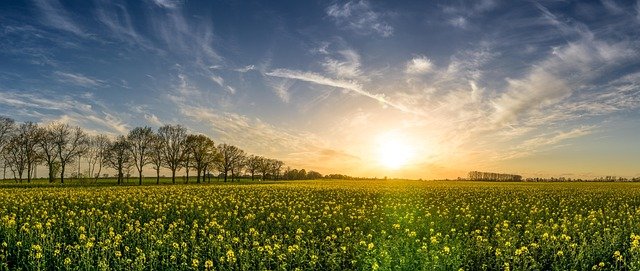
Explore the French Countryside- Peaceful Destinations Away from the Crowds
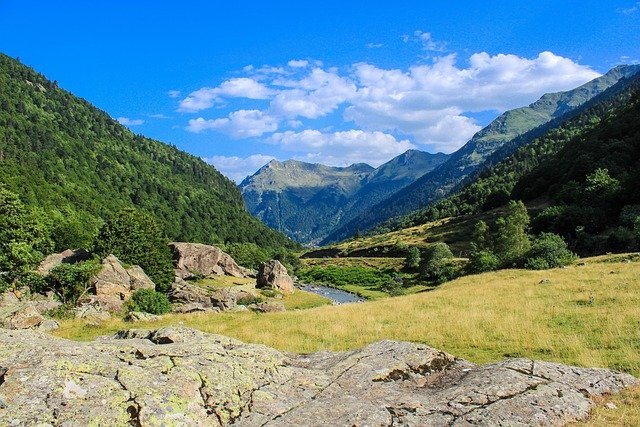
Peaceful Destinations Away from the Crowds
Meta Description: Discover hidden gems in the French countryside with cheap flights and budget-friendly hotels. Explore peaceful villages, local favorites, and undiscovered treasures perfect for family vacation ideas away from tourist crowds.
• Introduction to France’s Hidden Rural Treasures • Planning Your French Countryside Adventure • Undiscovered Gems in Provence-Alpes-Côte d’Azur • Loire Valley’s Secret Villages and Châteaux • Burgundy’s Wine Country Beyond the Tourist Trail • Normandy’s Coastal Villages and Hidden Harbors • Alsace’s Fairy Tale Towns and Local Favorites • Budget-Friendly Accommodation Options • Transportation and Getting Around • Local Dining Experiences and Traditional Cuisine • Cultural Tips for Authentic Rural France • Best Times to Visit the French Countryside • Practical Travel Information and Visa Requirements • Family-Friendly Activities and Hidden Paradises • Frequently Asked Questions
Have you ever wondered what lies beyond Paris’s bustling boulevards and the Riviera’s crowded beaches? The French countryside whispers secrets that only those willing to venture off the beaten path will discover. Picture yourself wandering through cobblestone villages where time seems to pause, breathing in the scent of lavender fields that stretch endlessly toward rolling hills, and sharing stories with locals whose families have called these places home for generations.
The real France, the one that captures hearts and creates lifelong memories, exists in these quiet corners where undiscovered treasures await the curious traveler. From ancient stone cottages draped in climbing roses to weekly markets bursting with local produce, the countryside offers family vacation ideas that go far beyond typical tourist experiences.
Planning a countryside escape requires a different approach than visiting major cities. These locally favored places operate on their own rhythm, where shops close for long lunches and conversations with strangers can lead to invitations for home-cooked meals.
Finding cheap flights and budget-friendly hotels becomes easier when you target smaller regional airports. Consider flying into Lyon instead of Paris for Burgundy exploration, or Toulouse for southwestern adventures. Regional carriers often offer better deals, especially during shoulder seasons.
Budget-conscious families can explore hidden paradises without breaking the bank through these strategies:
• Book accommodations in gîtes (vacation rentals) which offer kitchen facilities and authentic local experiences • Purchase regional train passes for unlimited travel within specific areas • Shop at local markets for picnic supplies rather than dining out for every meal • Take advantage of free cultural activities like village festivals and hiking trails
When I first discovered the village of Èze in the Alpes-Maritimes, I realized that the most memorable experiences often cost nothing at all. Watching sunrise paint the Mediterranean golden from ancient stone steps, listening to church bells echo through narrow alleys, breathing in the fragrance of wild herbs growing between centuries-old walls – these moments reminded me why we truly travel.
Beyond the famous lavender fields of Valensole lies a network of unfamiliar places that locals guard as precious secrets. The village of Moustiers-Sainte-Marie clings to limestone cliffs like a work of art, its ceramic workshops continuing traditions passed down through generations.

The Abbey of Sénanque-offers moments of profound tranquility where you can hear your own heartbeat in the silence.
Gordes might appear in guidebooks, but venture into its surrounding valleys and you’ll uncover hidden wonders that tour buses never reach. The Abbey of Sénanque, surrounded by purple lavender rows, offers moments of profound tranquility where you can hear your own heartbeat in the silence.
Local tip: Visit the weekly market in Gordes early morning when vendors set up their colorful displays of fresh produce, artisanal cheeses, and handmade crafts. The interactions with local farmers provide insights into rural French life that no guidebook can capture.
The Luberon region, with its secret havens like Oppède-le-Vieux and Saignon, tells stories through crumbling stone walls and wild olive groves. These abandoned medieval villages offer hiking opportunities where every turn reveals panoramic views across valleys dotted with cypress trees and vineyard rows.

Oppède-le-Vieux-tells stories through crumbling stone walls
For those seeking Cultural Experiences, the region’s pottery workshops in Apt provide hands-on learning opportunities where you can create your own Provençal ceramics under master craftsmen’s guidance.
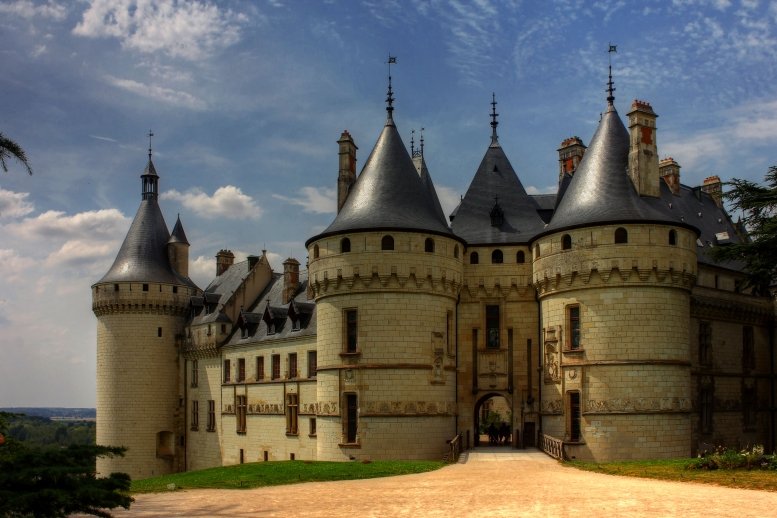
Loire Valley’s Secret Villages and Châteaux
The Loire Valley extends far beyond Chambord and Chenonceau. Discovering undiscovered treasures here means following winding country roads to forgotten châteaux where owners personally guide tours through family portraits and antique-filled rooms.
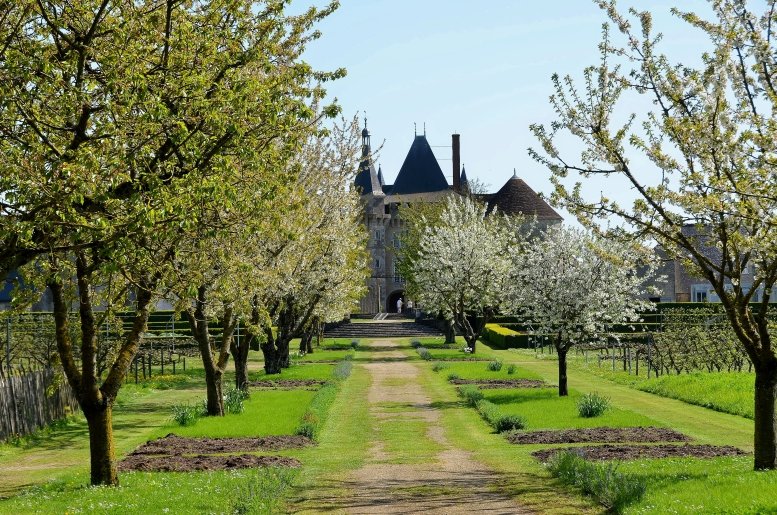
Château de Talcy stands surrounded by rose gardens
Château de Talcy stands surrounded by rose gardens where Pierre de Ronsard once wrote poetry. Unlike crowded tourist destinations, here you might find yourself alone with centuries of history, imagining royal gatherings in intimate salons overlooking manicured grounds.
The village of Candes-Saint-Martin, perched at the confluence of the Loire and Vienne rivers, offers hidden gems where medieval architecture reflects in calm waters. Walking its narrow streets feels like stepping through time, especially during golden hour when limestone walls glow warm amber.
Budget travelers can explore these areas through:
• Bicycle rentals from local shops offering better rates than tourist centers • Camping options along the Loire à Vélo cycling route • Farm stays (fermes-auberges) providing authentic meals and affordable accommodation • Free château gardens accessible even when interior tours require admission fees
The Hidden Gems of this region extend to wine cellars carved into tufa stone, where vignerons offer tastings in caves maintained by their families for generations.
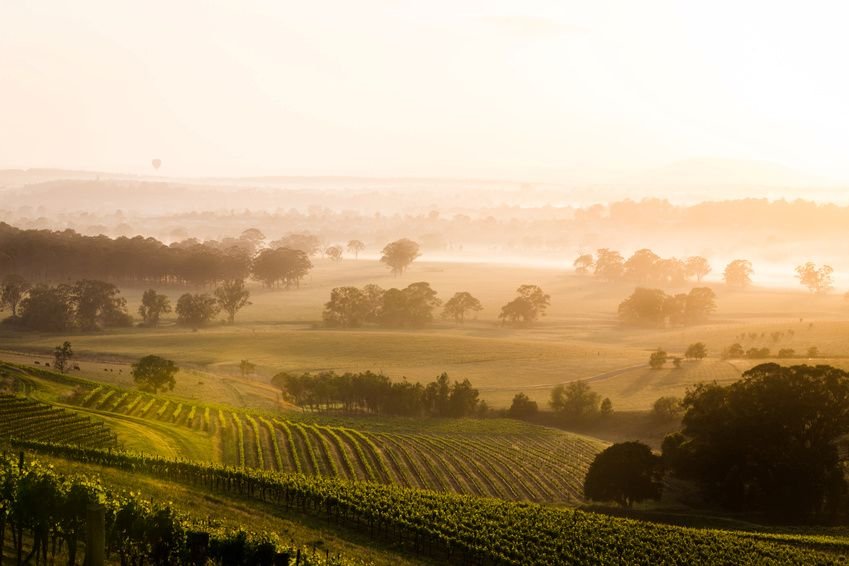
nature’s own cathedral incense.
Burgundy’s reputation rests on world-famous wines, but its locally favored places include villages where winemaking remains a family tradition rather than commercial enterprise. Driving the Route des Grands Crus reveals viewpoints where morning mist rises from vineyard rows like nature’s own cathedral incense.
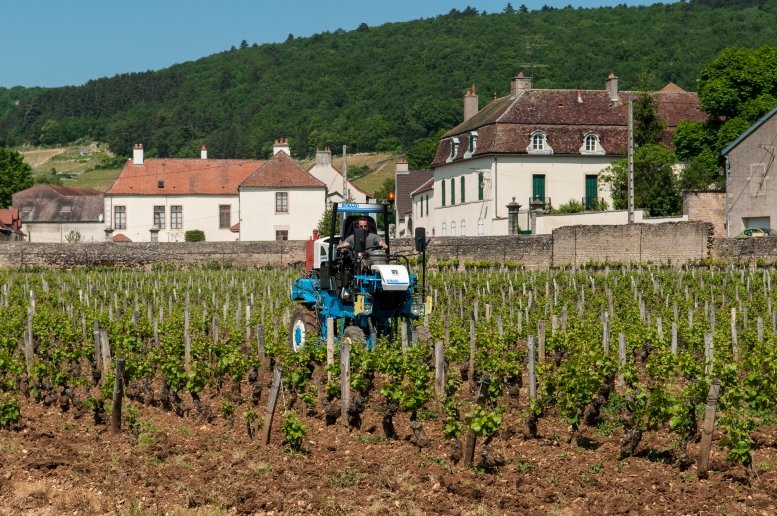
Gevrey-Chambertin- mornings begin with the sound of tractors
In Gevrey-Chambertin, mornings begin with the sound of tractors heading to vineyard work and the aroma of fresh bread from the village bakery. Here, wine tastings happen in family cellars where stories accompany each pour, and grandmother’s recipes pair perfectly with local vintages.
The village of Vézelay, crowned by its Romanesque basilica, overlooks rolling hills where pilgrimage routes have connected communities for centuries. Its secret havens include artisan workshops where traditional crafts continue, from hand-blown glass to organic farming techniques.
For Nature & Wildlife enthusiasts, the Morvan Regional Natural Park offers hiking trails through ancient forests where wild boar roam and rare birds nest. These paths lead to undiscovered paradises where crystal-clear streams flow past moss-covered stones.
Budget-conscious travelers can experience authentic Burgundy through:
• Staying in village chambres d’hôtes (bed and breakfasts) run by local families • Participating in harvest activities during September and October • Shopping at cooperative wineries offering excellent quality at reasonable prices • Exploring free hiking trails with panoramic vineyard views
Normandy’s coastline stretches far beyond D-Day beaches, revealing unfamiliar places where fishing boats bob in harbors unchanged for decades. The village of Beuvron-en-Auge, with its half-timbered houses and apple orchards, represents quintessential Norman charm without tourist crowds.
In Honfleur’s back streets, away from the tourist-filled Vieux Bassin, local artists still paint harbor scenes while fishermen mend nets in morning light. These hidden wonders include weekly markets where vendors sell fresh oysters, Norman cheeses, and calvados produced by small family distilleries.
The Pays d’Auge region offers family vacation ideas centered around cider routes winding through orchards heavy with apples. Traditional cider farms welcome visitors for tastings in centuries-old cellars where wooden barrels age the golden liquid.
Etretat’s famous cliffs extend along coastline paths leading to secret retreats where only dedicated hikers venture. These viewpoints offer solitude with the English Channel stretching endlessly toward horizon lines.
For Family Trip Planning, Normandy provides educational opportunities at working farms where children can learn traditional cheese-making techniques and understand rural French agricultural practices.
The region’s locally favored places include:
• Small fishing ports like Port-en-Bessin where daily fish auctions continue traditional practices • Apple orchards offering seasonal picking experiences • Abbey ruins like Jumièges providing peaceful contemplation spots • Coastal walking paths connecting hidden beaches accessible only on foot
Alsace presents undiscovered treasures where German and French cultures blend in half-timbered architecture and culinary traditions. Beyond Colmar and Strasbourg lie villages where stork nests crown medieval towers and vineyard rows climb hillsides toward the Vosges Mountains.
Riquewihr might attract visitors, but neighboring Hunawihr offers similar charm with fewer crowds. Its fortified church stands surrounded by vineyards where Riesling and Gewürztraminer grapes ripen under gentle Alsatian sun. Walking these vineyard paths during harvest season fills the air with sweet grape fragrances and the sounds of family teams working together.
The village of Eguisheim spirals outward from its central square in concentric circles, each ring revealing new discoveries. Local winemaker cellars open directly onto cobblestone streets, where tastings happen in medieval vaulted rooms decorated with ancient wine-making tools.
For those interested in Historical Wonders, the region’s castles dot hilltops like sentinels watching over peaceful valleys. Haut-Koenigsbourg offers dramatic views, but lesser-known ruins provide solitude for contemplation and photography.
Secret havens in Alsace include:
• Mountain hiking trails through Vosges forests leading to hidden lakes • Traditional winstub (wine taverns) serving authentic regional cuisine • Christmas markets in smaller villages offering handmade crafts • Cycling routes through vineyards connecting family-owned wineries
The region’s undiscovered paradises extend to thermal spas in villages like Niederbronn-les-Bains, where natural hot springs have provided healing waters since Roman times.
Discovering the French countryside doesn’t require luxury budgets. Cheap flights and budget-friendly hotels combine with alternative accommodation options to make rural France accessible for every traveler.
Gîtes ruraux represent France’s best-kept accommodation secret. These self-catering properties, often converted farmhouses or village homes, provide authentic experiences while keeping costs manageable. Families particularly benefit from kitchen facilities, allowing them to shop at local markets and prepare meals with regional ingredients.
Chambres d’hôtes offer bed and breakfast experiences in family homes where hosts share local knowledge and insider tips. These locally favored places often cost less than hotels while providing personal connections that transform ordinary trips into unforgettable adventures.
Farm stays (fermes-auberges) combine accommodation with dining experiences featuring ingredients produced on-site. Waking to rooster calls and sharing breakfast with farming families provides insights into rural French life that no guidebook can capture.
Budget accommodation strategies include:
• Booking gîtes during shoulder seasons for significant savings • Choosing properties slightly outside main tourist areas • Considering camping options in municipal campgrounds with excellent facilities • Exploring monastery accommodations offering peaceful retreats at minimal costs
For Planning Travel Trips, rural accommodations provide flexibility to explore multiple regions while maintaining budget consciousness.
Exploring unfamiliar places in rural France requires transportation planning different from city visits. Regional trains connect major towns, but reaching hidden gems often involves creative solutions.
France’s regional trains (TER) offer unlimited day passes for specific areas, making them budget-friendly options for countryside exploration. The train journey itself becomes part of the experience, passing through landscapes dotted with medieval villages and rolling agricultural fields.
Bicycle rentals provide sustainable transportation while allowing intimate landscape engagement. Many regions maintain dedicated cycling paths connecting villages, vineyards, and historical sites. The Loire à Vélo and Alsace Wine Route offer particularly well-developed cycling infrastructure.
Local bus networks, though less frequent than urban systems, connect rural communities and provide opportunities to interact with residents. These journeys often reveal secret retreats that organized tours overlook.
Car rental offers maximum flexibility for family vacation ideas involving multiple destinations. Smaller rental companies in regional towns often provide better rates than international chains, while supporting local businesses.
Transportation tips for budget travelers:
• Book rental cars through local agencies for better prices and personal service • Consider car-sharing options for short distances between villages • Explore walking paths connecting nearby communities • Use regional train passes for unlimited daily travel within specific areas
Rural France’s undiscovered treasures extend to culinary experiences where traditional recipes pass through generations unchanged. Village restaurants, family farms, and local markets provide authentic flavors that reflect regional terroir and cultural heritage.
Fermes-auberges represent France’s original farm-to-table movement, where meals feature ingredients produced on-site. These dining experiences occur in converted barns or farmhouse kitchens where families share their agricultural heritage through food.
In Normandy, cider farms serve traditional dishes paired with house-made calvados and pommeau. The combination of fresh oysters, Norman cheeses, and apple-based spirits creates flavor profiles unique to the region.
Burgundy’s wine estates often include restaurant facilities where chef-prepared meals complement estate wines. These experiences provide education about wine pairing while supporting small family businesses.
Market dining represents budget-friendly alternatives where prepared foods from multiple vendors create diverse meal options. Village markets throughout France offer regional specialties from cheese vendors, charcuterie specialists, and local bakers.
Locally favored places for authentic dining include:
• Village bistros serving plat du jour (daily specials) using seasonal ingredients • Boulangeries offering regional pastries and fresh bread varieties • Fromageries with cheese selections from local producers • Weekly markets featuring prepared foods from family vendors
For those seeking Cultural Experiences, cooking classes in village settings provide hands-on learning about regional techniques and ingredient selections.
Understanding rural French culture enhances countryside experiences and creates meaningful connections with local communities. Unfamiliar places operate according to traditions and social customs that differ significantly from urban environments.
Rural French communities value politeness and proper greetings. Entering shops or restaurants without saying “Bonjour” appears rude, while taking time for conversations shows respect for local pace of life.
Village life revolves around weekly markets, seasonal festivals, and family gatherings. Participating in these events provides insights into community dynamics and cultural values that persist across generations.
Language barriers often dissolve through genuine interest and effort. Rural residents appreciate visitors who attempt French phrases and show curiosity about local customs, even when communication remains basic.
Regional festivals celebrate everything from wine harvests to patron saints, offering hidden gems of cultural immersion. These events feature traditional music, regional cuisines, and community activities where visitors become temporary village members.
Cultural engagement strategies:
• Learn basic French phrases related to food, directions, and polite conversation • Show interest in local history and family traditions • Participate in seasonal activities like grape harvests or village festivals • Respect meal times and shop hours that accommodate local schedules • Purchase local products to support community economies
For Popular Destinations planning, understanding cultural nuances helps travelers appreciate why certain places become beloved by those who discover them.
Timing countryside visits enhances experiences while potentially reducing costs. Each season offers unique advantages for discovering secret havens and undiscovered paradises throughout rural France.
Spring (April-June) brings wildflower blooms, mild temperatures, and fewer crowds to most regions. This period offers excellent value for accommodations while providing comfortable weather for outdoor activities and walking tours.
Summer (July-August) presents peak tourism season with highest prices and largest crowds, but also guarantees warm weather and long daylight hours. Rural areas remain less crowded than cities, making this viable for family vacation ideas despite higher costs.
Autumn (September-November) provides harvest seasons across wine regions, comfortable temperatures, and stunning foliage colors. This period offers some of the year’s best photography opportunities while accommodating budget-conscious travelers with reduced shoulder-season pricing.
Winter (December-March) brings quiet contemplation to countryside locations, with Christmas markets, cozy fireplaces, and snow-covered landscapes creating magical atmospheres. Accommodation costs reach yearly lows, though some attractions may have limited hours.
Seasonal activity highlights:
• Spring: Wildflower walks, Easter celebrations, mild weather hiking • Summer: Outdoor festivals, long daylight hours, swimming opportunities • Autumn: Harvest participation, foliage viewing, comfortable temperatures • Winter: Christmas markets, thermal spa visits, quiet contemplation
Planning countryside adventures requires understanding entry requirements, travel insurance, and practical considerations for rural exploration.
European Union citizens can enter France without visas for unlimited stays. Citizens from many countries including the United States, Canada, and Australia can visit for up to 90 days within any 180-day period without visas.
Travel insurance becomes particularly important for countryside visits where medical facilities may be distant from accommodation locations. Comprehensive coverage should include medical emergencies, trip cancellation, and coverage for outdoor activities.
For current visa requirements and entry procedures, consult official French government sources at France-Visas.gouv.fr for the most up-to-date information.
Rural France presents minimal safety concerns, with crime rates significantly lower than urban areas. However, outdoor activities require preparation for changing weather conditions and terrain challenges.
Emergency contact information should include local police (17), medical emergencies (15), and fire department (18). These numbers work throughout France from any phone.
Practical preparation checklist:
• Valid passport with at least six months remaining validity • Travel insurance covering medical emergencies and outdoor activities • Emergency contact information for local authorities • Basic first aid supplies for hiking and outdoor exploration • Weather-appropriate clothing for seasonal conditions • Reliable communication devices for rural areas with limited cell coverage
For comprehensive Planning Tourist Routes, consider geographical distances and transportation options when scheduling multiple destinations.
Rural France offers exceptional family vacation ideas where children can experience educational adventures while parents discover undiscovered treasures away from crowded tourist attractions.
Farm visits provide hands-on learning about traditional agriculture, animal care, and food production. Children can participate in activities like cheese-making, bread baking, and seasonal harvests while learning about sustainable farming practices.
Château visits often include special programs for young visitors, with treasure hunts, medieval costume experiences, and interactive historical presentations. These locally favored places make history tangible through engaging activities.
Outdoor adventures in national parks and regional nature reserves offer hiking trails suitable for various fitness levels. The Vosges Mountains, Massif Central, and Pyrenees provide secret retreats where families can explore together while learning about local ecosystems.
Cycling paths throughout wine regions accommodate family groups with gentle gradients and interesting stops at villages, vineyards, and historical sites. Electric bike rentals make longer distances accessible for mixed-age groups.
Family activity suggestions:
• Participate in grape harvests during September and October • Visit working farms where children can interact with animals • Explore medieval villages with treasure hunt games • Learn traditional crafts like pottery, weaving, or woodworking • Discover underground caves and geological formations • Enjoy canoeing or kayaking on calm rivers through countryside
For specialized Honeymoon Getaways, many rural destinations also provide romantic settings that can be enjoyed by multi-generational family groups.
Responsible countryside travel supports rural communities while preserving the hidden gems that make these destinations special. Understanding tourism’s impact helps visitors make choices benefiting both local economies and environmental conservation.
Choosing locally-owned accommodations, restaurants, and activity providers ensures tourism revenue directly benefits rural communities. These decisions help maintain traditional ways of life and preserve cultural authenticity that attracts visitors.
Shopping at local markets, artisan workshops, and family businesses supports economic sustainability while providing authentic products unavailable elsewhere. These purchases become meaningful souvenirs representing genuine cultural connections.
Participating in seasonal activities like harvests, festivals, and traditional craft workshops provides cultural exchange opportunities while supporting continuing traditions.
Environmental responsibility includes:
• Using public transportation and cycling when possible • Respecting natural areas and wildlife habitats • Following Leave No Trace principles during outdoor activities • Supporting accommodations with environmental certifications • Purchasing local products to reduce transportation environmental impacts
Tourism’s growth can threaten the quiet character that makes countryside destinations appealing. Responsible visitors help preserve these qualities through respectful behavior and mindful choices.
Avoiding peak season crowds, when possible, reduces strain on local infrastructure while providing more authentic experiences. Shoulder season visits often offer better weather, lower prices, and more meaningful interactions with residents.
Respecting local customs, participating in community events, and learning about regional history demonstrates appreciation for cultural heritage while encouraging its preservation.
Each French countryside region maintains distinctive traditions in food production, craftsmanship, and cultural practices. Discovering these undiscovered treasures provides insights into local identity and historical continuity.
Provence’s pottery traditions continue in workshops where artisans create ceramics using techniques passed through generations. Visitors can observe production processes and purchase unique pieces directly from creators.
Alsace’s textile traditions include hand-woven fabrics and traditional costume elements still used for festivals and special occasions. Local workshops offer demonstrations and finished products unavailable in commercial settings.
Normandy’s apple-based products extend beyond cider and calvados to include traditional preserves, vinegars, and confections made by family businesses maintaining centuries-old recipes.
Burgundy’s artisan food producers create products complementing the region’s wine reputation, including mustards, honey varieties, and specialty cheeses aged in traditional caves.
Regional specialty discoveries:
• Hand-blown glass in Loire Valley workshops • Traditional lace-making in rural Auvergne communities
• Lavender products from family farms in Provence • Artisan honey from beekeepers in diverse regional landscapes • Hand-forged ironwork from village blacksmith shops • Traditional musical instruments crafted by regional artisans
These locally favored places often welcome visitors for workshops, demonstrations, and direct purchases supporting continuing traditions.
France’s countryside conceals secret havens where natural beauty unfolds away from organized tour groups and crowded viewpoints. These locations reward explorers willing to venture beyond marked tourist trails.
The Vercors Plateau hides limestone formations, underground rivers, and canyon systems where hiking paths lead to viewpoints overlooking dramatic landscapes. These undiscovered paradises provide solitude for contemplation and photography.
Auvergne’s volcanic landscapes include crater lakes, thermal springs, and ancient lava formations creating unique ecosystems. The region’s hidden wonders extend to village communities maintaining traditional relationships with their dramatic natural environment.
The Jura Mountains conceal waterfalls, pristine lakes, and forest paths where wildlife sightings include deer, wild boar, and rare bird species. These areas offer family vacation ideas combining outdoor adventure with environmental education.
Coastal regions beyond famous beaches reveal hidden coves, tidal pools, and clifftop paths accessible only through local knowledge or dedicated exploration. These secret retreats provide intimate experiences with France’s diverse maritime environments.
Natural discovery opportunities:
• Explore underground cave systems with guided tours • Discover mountain lakes accessible through hiking trails • Visit geological formations showcasing France’s diverse landscape history • Find waterfalls and natural swimming areas known mainly to locals • Observe wildlife in their natural habitats during appropriate seasons • Experience thermal hot springs in mountain and volcanic regions
Look for flights to regional airports like Lyon, Toulouse, or Nantes instead of Paris. Use flight comparison websites and consider flying mid-week or during shoulder seasons. Budget airlines often serve smaller French cities with significantly lower fares than major carriers flying to Charles de Gaulle.
Gîtes ruraux (rural vacation rentals) offer excellent value, especially for families or longer stays. Chambres d’hôtes (bed and breakfasts) provide personal experiences at reasonable prices. Consider farm stays, municipal campgrounds, or monastery accommodations for unique budget options.
Late spring (May-June) and early autumn (September-October) offer ideal conditions with mild weather, fewer crowds, and lower accommodation prices. Summer provides maximum daylight and warm weather but higher costs and more tourists.
Download translation apps, learn basic phrases, and don’t be afraid to use gestures and patience. Rural French people are generally helpful to polite visitors making genuine efforts to communicate. Consider guided tours or hiring local drivers for initial orientation.
Comfortable walking shoes, weather-appropriate layers, rain protection, and sun protection are essential. Include a daypack for hiking, reusable water bottle, and basic first aid supplies. Dress modestly for village visits and church exploration.
Absolutely! Rural France offers numerous family-friendly activities including farm visits, castle exploration, cycling paths, and educational workshops. Many accommodations cater specifically to families with children’s facilities and activities.
Budget travelers can manage on €50-70 per day including accommodation, meals, and activities. Mid-range budgets of €100-150 per day allow comfortable accommodations and dining experiences. Luxury experiences start around €200+ per day depending on region and season.
Yes! Wine regions offer beautiful landscapes, historical sites, cultural experiences, and culinary specialties beyond wine tasting. Many vineyards provide grape juice tastings and welcome visitors interested in agriculture and regional history.
The French countryside holds secrets that reveal themselves slowly, like morning mist lifting from vineyard rows to expose ancient villages nestled in green valleys. These undiscovered treasures await travelers willing to trade tourist crowds for authentic experiences, where conversations with local artisans become treasured memories and hidden pathways lead to secret havens that guidebooks never mention.
Whether you’re planning family vacation ideas or seeking personal retreat from busy urban life, rural France offers locally favored places where time moves differently, relationships matter more than schedules, and every turn in ancient stone streets might reveal your next favorite memory.
Ready to discover hidden wonders in the French countryside? Start planning your escape to these undiscovered paradises where cheap flights and budget-friendly hotels make authentic French experiences accessible to every traveler. Your perfect rural French adventure awaits in villages where locals still remember your name and stories unfold naturally over shared meals and unhurried conversations.
Call to Action: Begin your French countryside adventure today by exploring our comprehensive travel resources at travelgoeasy.net. From finding the best flight deals to discovering hidden accommodation gems, we’ll help you create unforgettable memories in France’s most beautiful rural destinations.
This article is exclusively created for travelgoeasy.net and is protected from copying and unauthorized use. All content is proprietary to Travel Go Easy.
by exploring our comprehensive travel resources at travelgoeasy.net. From finding the best flight deals to discovering hidden accommodation gems, we’ll help you create unforgettable memories in France’s most beautiful rural destinations.




